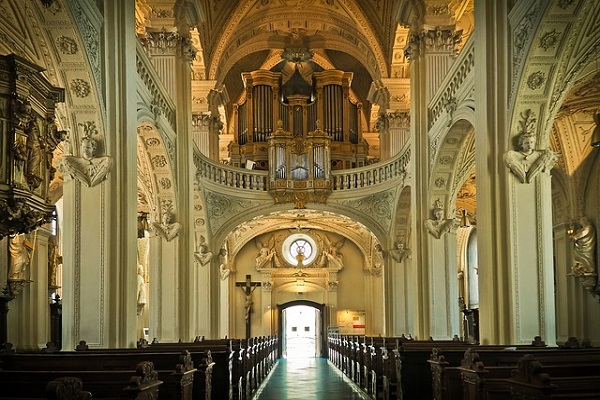
How Political is Your Pastor? Very, a New Study Shows
- By Alison Lesley --
- 16 Jun 2017 --

A new study examines the political leanings of religious leaders.
Does church influence your politics or do you seek a house of worship that connects with your political beliefs? A study conducted by researchers from Yale and Harvard sought to answer these questions.
How Political is Your Pastor? Very, a New Study Shows[/tweetthis]
Earlier this year, Eitan Hersh of Yale and former Harvard graduate student Gabrielle Malina conducted a study that wanted to test the relationship between religion and political affiliations. For their study, Hersh and Malina collected data on over 180,000 members of the clergy in the US. The researchers managed to get voter registration data on 130,000 of the original number. This figure was enough for the research team to hypothesize on the political affiliations of these religious leaders. Hersh and his team noted that the hypotheses had only been drawn from Christians and majority Jewish groups because accurate data on Muslim, Mormon and other religions had not been available for analysis. However, the research team concluded that the findings were good indicators because the research pool represented about 70% of the entire US population.
After making their rounds in voter registers, Hersh and Malina discovered that in given conditions and churches, religious denomination was a good indicator of a person’s political inclinations. The team discovered more liberal churches were more likely to have Democratic pastors and congregants. In the same vein, conservative people belonged to similarly conservative churches and were more inclined to vote for Republicans than liberal churches. Churches like the Presbyterian Church and the Episcopal Churches, as well as Reform and Conservative Jews, had partisan leaders and congregants, most of them leaning towards the Democratic side. On the other hand, Evangelical and Baptist churches had Republican-inclined leadership and congregation.
The researchers were, however, unable to tell whether the distinction was because the clergy influenced the congregation’s political views or just reflected them. This was especially true in Roman Catholic churches. Catholic leaders and parishioners appeared to be deeply divided politically, with almost an equal number of Republicans and Democrats.
The research study also helped form a bonus hypothesis: the gender of clergy leadership influenced their political views and by extension the congregation. On average women accounted for only 16% of the total clergy pool. Of all the churches that were examined in the study, those that had a majority female leadership such as the Unitarian Church showed more liberal inclinations than those led by a male majority clergy. Denominations that cater to more affluent congregations were also more likely to be Democrats, like the Rabbis of Reform and Conservative Judaism.
The study ended up showing that religion denominations were not very accurate indicators of political affiliations. For example, the Roman Catholics were deeply divided. Similarly, in some churches the clergy was partisan, but their parishioners were deeply divided. However, it did show a direct correlation between a person’s level of devotion and their political inclinations. Those who attended church strictly and prayed more often were more likely to be conservative than liberal. Religious denominations on their own only hinted at an individual’s views on policies like same-sex marriages and abortion.


















